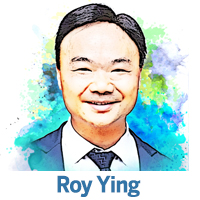The Hong Kong Special Administrative Region’s property prices have fallen to a nine-year low, raising the question: Has the market reached the bottom yet? Home prices have been under immense pressure caused by a combination of factors — the impact of the COVID-19 pandemic, economic uncertainty caused by the US-China trade war, previously skyrocketing home prices that have strained affordability, a declining population reducing housing demand, and oversupply, with unsold inventory reaching a record 28,000 units.
 These challenges have led to a sustained decline in home prices since peaking in 2021. This year alone, prices fell 7.8 percent year-on-year in March to levels last seen in July 2016. While potential buyers remain hesitant and developers continue to slash selling prices, signs are emerging that external pressures are easing, setting the stage for a potential market rebound.
These challenges have led to a sustained decline in home prices since peaking in 2021. This year alone, prices fell 7.8 percent year-on-year in March to levels last seen in July 2016. While potential buyers remain hesitant and developers continue to slash selling prices, signs are emerging that external pressures are easing, setting the stage for a potential market rebound.
In response to these challenges, the HKSAR government has introduced various measures to stabilize the property market amid declining demand and population. These include a stamp duty reduction for home transactions under HK$4 million ($510,000), easing purchase restrictions, and lowering down payment requirements to encourage first-time buyers and improve accessibility.
These policies have laid a solid foundation for a rebound, positioning the sector for recovery as macroeconomic conditions and buyer confidence improve.
Indeed, the property market is beginning to show glimmers of hope, fueled by several encouraging developments. First, since 2022, the government has launched initiatives to attract talent from overseas and the Chinese mainland; over 200,000 individuals have arrived in the city through various talent and investment programs. While many of these new arrivals initially opted for rental housing, the first cohort is now approaching visa renewals, a juncture that may lead to longer-term commitments such as homeownership. The majority of these arrivals hail from the mainland, and the appreciation of the renminbi has boosted their purchasing power in Hong Kong. Additionally, under the New Capital Investment Entrant Scheme, property purchases of up to HK$10 million can count toward fulfillment of the minimum investment threshold of HK$30 million. So far, 673 applications have been approved under the program; these potential buyers are expected to bolster housing demand.
In addition, Hong Kong is benefiting from a surge of “hot money” inflows, as global investors diversify away from the United States market, which has been unsettled by the Trump administration’s unstable economic and trade policies. This influx of capital has not only lifted the stock market, as evidenced by the Hang Seng Index’s surge this year, but has also increased liquidity in the banking system, driving Hong Kong Interbank Offered Rate to near-zero levels. The lower interest rates incentivize potential homebuyers. For investors, the combination of declining interest rates and a buoyant rental market, driven by new demand from immigrants and expatriates, has made real estate an attractive alternative investment.
Furthermore, rents have already climbed 5.8 percent in 2024, and analysts are expecting a further 5 to 8 percent growth in 2025, driven also by surging demand from nonlocal university students. Research shows that there is a potential shortfall of student housing exceeding 47,000 beds if universities fully capitalize on their maximum quotas for nonlocal admissions. This housing gap stems from the government’s initiative to establish Hong Kong as a regional higher education hub, which included relaxing nonlocal student quotas for universities from 20 percent to 40 percent. With limited dormitory availability, students are turning to the private rental market. As rents continue to rise, many tenants are finding that monthly mortgage payments are now comparable to, or even lower than, their monthly rents. Homeownership is, therefore, becoming an increasingly attractive and cost-effective choice for them.
Finally, the supply-and-demand equation in Hong Kong’s property market is slowly moving toward equilibrium. The stock of unsold completed private flats has remained high since the pandemic, despite developers offering aggressive incentives and discounts to attract buyers. However, on the supply side, the government has not met its housing supply target since 2018, and the supply is expected to decline further, with the Housing Bureau projecting that the number of new private residential units available in the next three to four years will drop to about 100,000. On the demand side, property sales are showing signs of recovery. Although prices continued to decline in 2024, sales volume rose by 17.1 percent, and saw a further 24 percent increase in the first quarter of this year.
In a nutshell, signs of home prices stabilizing are emerging. The influx of talent, falling interest rates, improving rental returns, and RMB appreciation are gradually shifting the market dynamics in favor of a recovery. These factors, coupled with the government’s proactive measures to stabilize home prices, suggest that supply and demand are moving closer to equilibrium, and that the property market finally sees the light at the end of the tunnel. The outlook for the property market in the second half of the year is cautiously optimistic. If external conditions remain stable, the residential market could see a 3 to 5 percent rebound.
The author is a senior lecturer in the Department of Marketing, the Hang Seng University of Hong Kong.
The views do not necessarily reflect those of China Daily.


